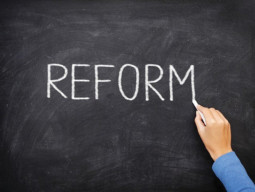While revealing the monetary policy, Governor SBP Yaseen Anwar said that the central bank wants to give stimulus to the economic growth without losing its focus from the persistent inflation in the country.
The move will be appreciated by businesses, as it will provide some relief to the private sector that has been perturbed by power crisis, security issues and political instability. The cut in policy rate is line with the demand of business community to bring the interest rates to single digits.
The decision of the central bank came after a fall in inflation. The monthly inflation in July 2012 came down to 9.6 percent, which was 12.3 percent in May 2012.
COMMENTS (18)
Comments are moderated and generally will be posted if they are on-topic and not abusive.
For more information, please see our Comments FAQ


1729080111-0/BeFunky-collage-(63)1729080111-0-165x106.webp)
1730838202-0/Trump-(1)1730838202-0-165x106.webp)













@Muhammad Ali: This is a very welcome development. As a matter of fact it should be not more than 8 to 9%. That stimulates growth. But SBP must ensure effective monitoring of private banks. They are fleecing the borrower and give almost nothing to the depositor. The worst cases are of so called Islamic Banking facades. If conventional banking is theft Islamic Banking is dacoity. With proper regulation from SBP we can ensure that businessmen do not take undue advantage of a deflationery measure. It does not increase inflation as you are suggesting on the contrary it will spur growth if rightly regulated.
This will not have any impact in stimulating the economy as people like dream, only speculative markets like kse might do a small bull run.
Inflatuon in pakistan is more of a cost full phenomenon rather then money printing one, currently Banks hoard money so botnmuch is making out in the system. They rather prefer to invest the money in goverment bonds as they too consider the financial and political, economic climate uncertain and don't loan out to small and medium enterprises/businesses which bsically are key economic stimulators and job creators.
This decrease would be short lives and will only serve the goverment as it is the major borrower fromt the comercial banks these days.
@Falcon: youre correct, these people dont know what they are talking about. your economic intuition is on the mark
@Khalq e Khuda: It is not high interest rates that is choking private borrowing, it is high government debt that is doing so because all the banks are investing heavily in govt paper rather than lending to private enterprises to undertake projects. reducing interest rates will cause a disproportionate increase in inflation that will overshadow the small increase in gdp it will cause.
@Zamir: Wow, you have no idea what monetary economics is about, do you?
WOW! There are people here who would have wanted a bigger cut!
Grow up guys and read some simple first-year macro. Whatever the NOMINAL rate, you need to adjust it for inflation. It is better to use EXPECTED inflation (rather than past inflation which may, or may not, replicate itself) but that is difficult to estimate although I would hope that the SBP has an inflation forecasting model that is constantly validated/up-dated.
So, allowing for future/expected inflation, what is the REAL RATE? Zero? Possibly negative? Great for borrowers -- especially the government and the fat-cats in business -- but bad for savers. You and me. Should we not be doing the reverse?
How is it we always get a hold of the wrong end of the stick?
And this will "stimulate" the economy?
Does the economy need monetary stimulus? Is the absence of a monetary stimulus holding back investment and growth, and jobs and poverty alleviation?
Isn't there enough stimulus coming from the fiscal side with a deficit, when properly measured, close to 10% of GDP in FY12?!
Investment, especially private investment, is driven by a host of complex factors and Prof. Joan Robinson of Cambridge summed it up best: investment is driven by "animal spirits". You can add to her wise words deep-seated structural impediments such as no energy, a precarious security situation, the staggering losses of the PSEs, circular debt, political uncertainty, and a global economy that faces heightened risks with the drought in the US and poor harvests elsewhere (Russia and Brazil) threatening to push up food prices (and hence headline inflation) throwing millions back into poverty.
Enjoy the "stimulus" folks.
The charging of interest (usury) is simply a mechanism to create wealth without the need to work for it. Or as Shakespeare said, to breed "barren metal ..."
For when did friendship take A breed for barren metal of his friend? -- William Shakespeare (1564-1616), The Merchant of Venice -- Act i, Sc. 3
No sir, saving accounts have been exempted from service charges since July 1, 2011. You should ask your bank to reverse them. Secondly, about credit cards, banks does the complete analysis as per Prudential Regulations issued by SBP. Most important of which is, that minimum monthly payment should not exceed 50 percent of borrowers net take home income. This said, the problem lies in the way the borrowers manipulate the documents provided to the banks to assess their repayment capacity which lead to sum prime borrowing. And dear, in every where in the world, if you undertake to become a guarantor for a person, you "'ÄRE" liable to pay for their liabilities. And if you are in the references, you are contacted if the borrower goes underground. SBP has also issued guidelines for ethical conduct for banks to be followed for recovery. I think, you got to take them into account.
@Falcon:
The reduction has been done because there has been a reduction in inflation rates. You have to strike a balance between interest rates and inflation and I think it is about time we bring interest rates to single digit as it is choking private sector borrowing.
with lower interest rate the cost of borrowing for debt servicing for the government on the accumulated debt will lessen... soon we may see another borrowing frenzy by the government
@Khalq e Khuda and @Zamir: Won't reduction in interest rate lead to further increase in money supply and therefore lead to further inflation (of course in addition to stimulating some business activity, which itself might be limited due to the fact that a lot of capital has been crowded by govt. borrowing)?
A good move by State Bank though a further reduction of 100 basis points would have been good, it is good that SBP didn't give into the temptation which would have resulted in uncontrollable inflationary pressure.
@To all the above morons:
Check on the inflation rates before you start blasting government left right and center.
A policy rate of 10.5% is a low rate? And how would a reduction in interest rates lead to further inflation?
I would say reduce it further if you really are serious about stimulating the business activity in the country.Let people invest in real businesses & help generate more jobs instead of storing their wealth in the banks!
And what about people with savings invested in banks or government saving schemes? They just knocked off over 10% of the monthly income of small savers effectively forcing people to invest in riskier businesses. And of course, lower interest rate leads to higher inflation. Get ready folks!
No monetary policy can work if there is an incompetent and immeasurably corrupt lot governing the country. An estimated Rs 8 Bn corruption a day speaks for the destination we are heading. The nation has destroyed their own country by electing such rulers.
This will cause inflation.
Poor policies of State Bank are not according to the wishes of the nation.
The cut does not mean any thing for the people as they are still facing the highest level of inflation in the country during the term of PPP government.
Look at the individual policies of Saving Bank Accounts of the Banks.
Only in one example, The Standard Chartered Bank in Karachi wants minimum balance of Rs.50,000 to maintain the account, otherwise the account holder has to pay the penalty every month for the shortfall.
Similar are the cases of Credit Card Holders. The applicants apply with the names of references and when the Credit Card Holders becomes defaulters, these banks call the people to ask the defaulters whose names have been provided by the Credit Card Defaulters at the time of making an application for issuance of a Credit Card.
These banks are suppose to verify the credentials of the applicants before issuing the Credit Cards to the Credit Card Holders, but this is never done.
It seems that State Bank of Pakistan does not govern the foreign or local banks, but in fact the foreign and local banks govern the State Bank of Pakistan.